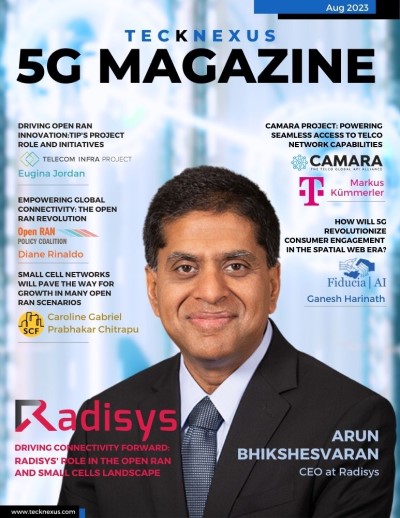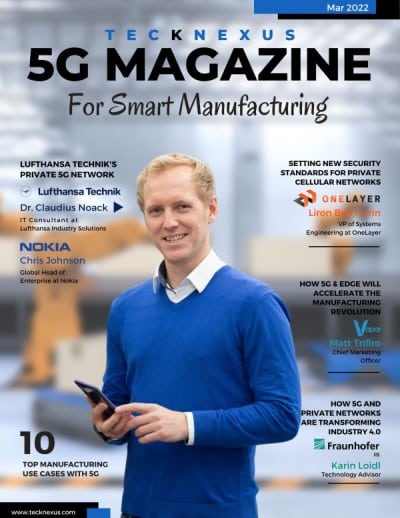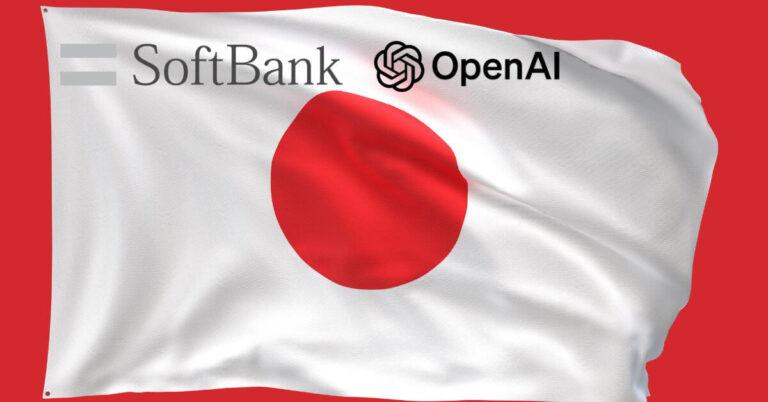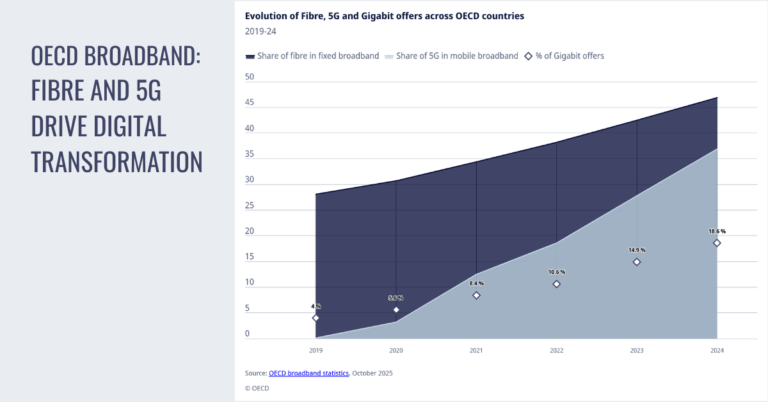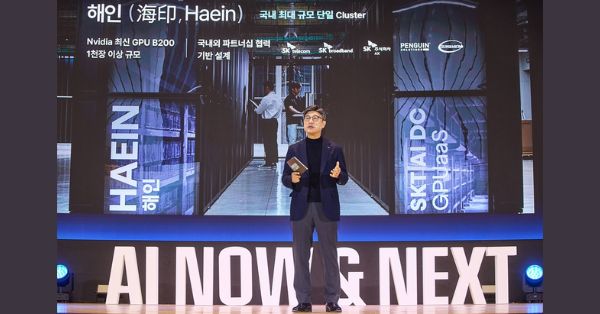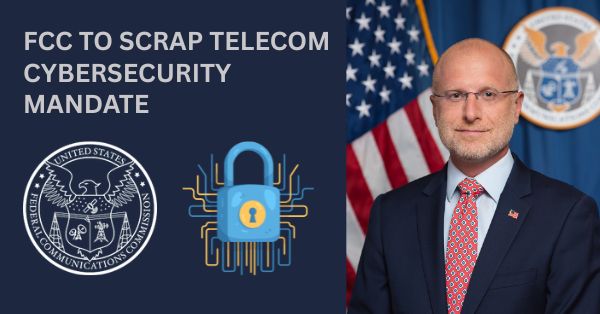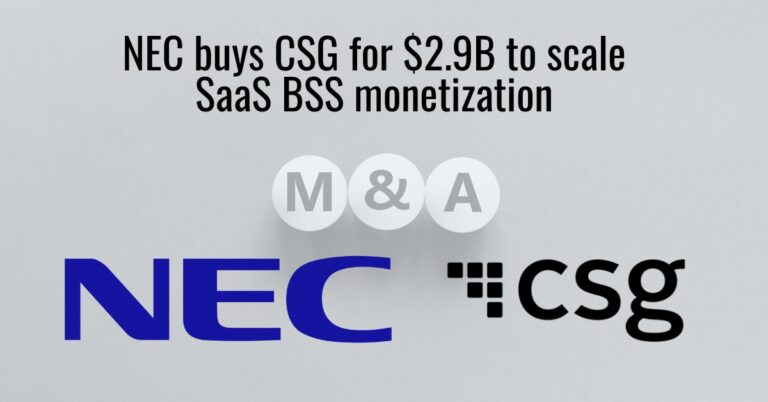Nokia’s $4B US investment in AI‑native networks
Nokia is making a multi‑year, $4 billion push to expand US R&D and manufacturing as it pivots to AI‑native networks under CEO Justin Hotard.
Nokia’s $4B US R&D and manufacturing plan
The company will invest roughly $3.5 billion in US‑based R&D spanning networking technologies, defense applications, automation, quantum‑safe networking, …
Home » Public sector
Public sector
Essential insights and practical tools for navigating private networks. Get Details.
Available on Amazon & Google Books
Subscribe To Our Newsletter
- Tech News & Insight
- November 24, 2025
- Hema Kadia
Nokia is making a multi‑year, $4 billion push to expand US R&D and manufacturing as it pivots to AI‑native networks under CEO Justin Hotard. The company will invest roughly $3.5 billion in US‑based R&D spanning networking technologies, defense applications, automation, quantum‑safe networking, and semiconductor development. A further $500 million targets
- Tech News & Insight
- November 21, 2025
- Hema Kadia
Deutsche Telekom’s T-Systems has secured a multi-million-euro contract from Leibniz University Hannover to power SOOFI, a flagship initiative to build a 100-billion-parameter, European-operated large language model. The SOOFI (Sovereign Open Source Foundation Models) project will train a next-generation, open-source LLM focused on European languages and industrial requirements, replacing the current
- Tech News & Insight
- November 12, 2025
- Hema Kadia
Anthropic will spend $50 billion on U.S.-based AI data centers, signaling a rapid new phase for domestic compute capacity with direct consequences for power, fiber, and cloud interconnects. Anthropic plans a multi-year, $50 billion program to develop custom data center campuses in the United States, beginning with Texas and New
- Tech News & Insight
- November 6, 2025
- Hema Kadia
SoftBank and OpenAI have formed SB OAI Japan, a jointly owned entity that will commercialize “Crystal intelligence,” a bundled enterprise AI offering focused on management and operations in Japan. The venture will combine OpenAI’s enterprise-grade models and tooling with localization, integration, and support led by SoftBank in-market. Crystal intelligence is
- Tech News & Insight
- November 4, 2025
- Hema Kadia
OECD data shows fixed and mobile broadband have shifted from build-out to scale-up, with fibre and 5G underpinning a new phase of digital infrastructure. Fixed broadband penetration across the OECD rose to 36.5 subscriptions per 100 inhabitants by end-2024, up from 32 in 2019, while the fibre share of fixed
- Tech News & Insight
- November 3, 2025
- Hema Kadia
At SK AI Summit 2025, CEO Jung Jaihun outlined plans to expand the Ulsan artificial intelligence data center (AIDC) to 1GW-class capacity, stand up a nationwide trio of hubs (Gasan in the Seoul metro, Ulsan in the south, and a new southwest site), and take the model into Southeast Asia
- Tech News & Insight
- November 2, 2025
- Hema Kadia
The Federal Communications Commission plans a November vote to rescind a January ruling that tied carrier cybersecurity obligations to CALEA, resetting the regulatory posture after high-profile intrusions tied to Chinese state-linked actors. In January, the FCC interpreted the Communications Assistance for Law Enforcement Act (CALEA) to require telecommunications carriers to
- Tech News & Insight
- October 29, 2025
- Hema Kadia
NEC is moving to scale its cloud and SaaS business support capabilities with a $2.9 billion acquisition of CSG Systems International, positioning Netcracker at the center of the combined telecom monetization play. CSG brings a sizable recurring-revenue portfolio in digital BSS, billing, charging, and customer engagement used by communications, cable,
- Tech News & Insight
- September 29, 2025
- Hema Kadia
South Korea is funding a national AI stack to reduce dependence on foreign models, protect data, and tune AI to its language and industries. The government has committed ₩530 billion (about $390 million) to five companies building large-scale foundation models: LG AI Research, SK Telecom, Naver Cloud, NC AI, and
- Tech News & Insight
- September 25, 2025
- Hema Kadia
In 2024, the U.S. cable sector generated $568.7 billion in total economic output and supported 1.3 million jobs across the country. This footprint spans broadband networks, video programming, construction, manufacturing, and a broad vendor ecosystem. It underscores why cable remains a central pillar of America’s connectivity and media economy even
TeckNexus Newsletters
I acknowledge and agree to receive TeckNexus communications in line with the T&C and privacy policy.
Whitepaper
Private cellular networks are transforming industrial operations, but securing private 5G, LTE, and CBRS infrastructure requires more than legacy IT/OT tools. This whitepaper by TeckNexus and sponsored by OneLayer outlines a 4-pillar framework to protect critical systems, offering clear guidance for evaluating security vendors, deploying zero trust, and integrating IT,...

Whitepaper
Telecom networks are facing unprecedented complexity with 5G, IoT, and cloud services. Traditional service assurance methods are becoming obsolete, making AI-driven, real-time analytics essential for competitive advantage. This independent industry whitepaper explores how DPUs, GPUs, and Generative AI (GenAI) are enabling predictive automation, reducing operational costs, and improving service quality....

Whitepaper
Explore how Generative AI is transforming telecom infrastructure by solving critical industry challenges like massive data management, network optimization, and personalized customer experiences. This whitepaper offers in-depth insights into AI and Gen AI's role in boosting operational efficiency while ensuring security and regulatory compliance. Telecom operators can harness these AI-driven...

Check Private Network Readiness
Industry Vertical Specific Deep-Dive Assessment

Manufacturing
$750
250 questions based assessment and insights
$750
Utilities
$500
65+ questions based assessment and insights
$500
Mining
$500
160 questions based assessment and insights
$500
Aviation
Coming Soon
75+ questions based assessment and insights
Coming Soon
Ports
Coming Soon
75+ questions based assessment and insights
Coming Soon* Prices does not include tax
Brand Connect
Amplify Your Brand & Boost Your Business
- Thought-Leadership Management
- Magazine Article
- Executive Interviews
- Whitepapers
- Research Reports
- Custom Research
- Blog Series
- Webinars
- Podcasts
- Advertorials
- Display Ads
- Event Partnership







